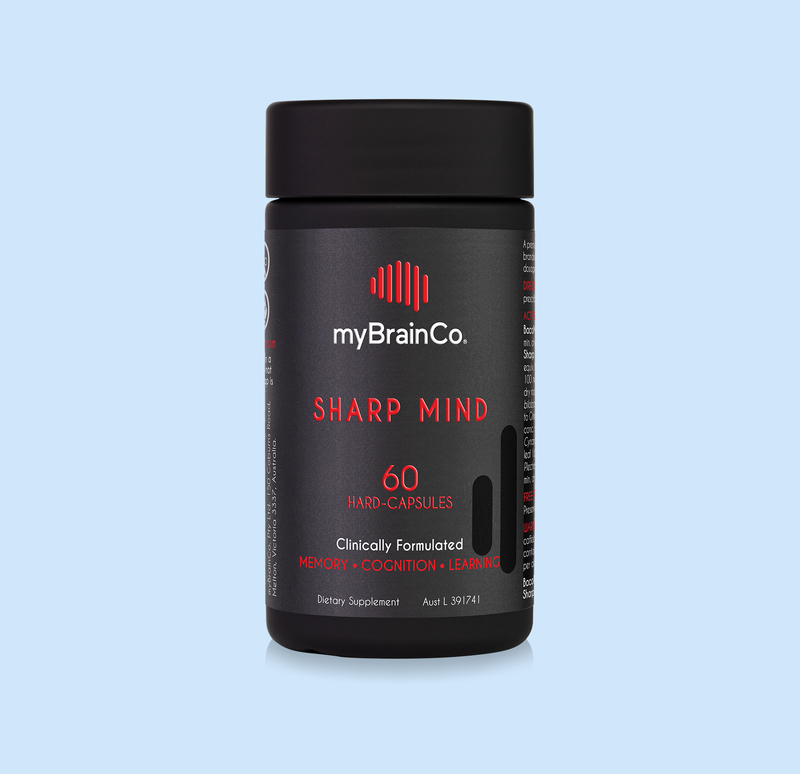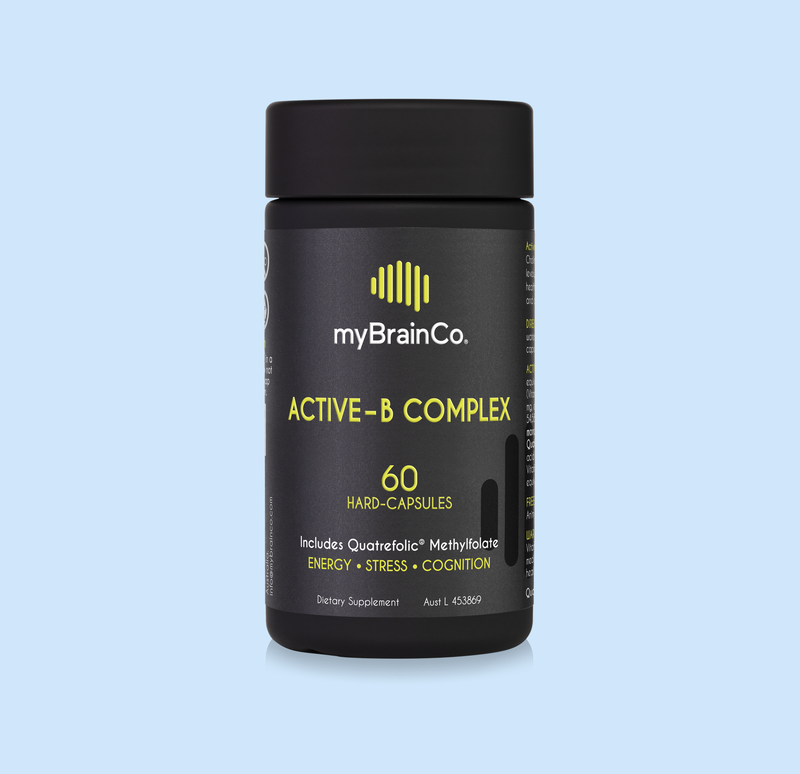What is NAC?
N-acetyl-cysteine (also known as NAC) is a supplement form of cysteine, a sulphur-containing amino acid that plays a crucial role in the production of our protective internal antioxidant systems.
Antioxidants are important wellbeing compounds that help neutralise free radicals, preventing cellular damage from oxidative stress and promoting overall health. NAC is best known in medicine for its use as an antidote to paracetamol (acetaminophen) poisoning, but its benefits extend far beyond this application. In functional and complementary medicine, NAC is a regularly recommended supplement thanks to its growing portfolio of scientifically validated uses.
What Can NAC Be Used For?
NAC is an extraordinary compound with an ever expanding list of scientifically backed antioxidant, immune, metabolic and anti-inflammatory applications.

NAC Is An Antioxidant Powerhouse
One of the core benefits of NAC is its ability to boost glutathione levels, one of the body's most important endogenous (made internally in our body) antioxidants. Glutathione plays a key role in protecting cells from oxidative stress, which is linked to numerous chronic diseases. Low glutathione status has been implicated in numerous health conditions including; cardiovascular diseases, COPD, diabetes, neurodegenerative and eye diseases and ageing. By replenishing glutathione levels, NAC helps support cellular health and resilience against environmental toxins and other harmful exposures.
NAC Benefits Respiratory Health and Mucus Reduction
NAC has well-documented mucolytic properties, meaning it can help break down and thin mucus. This makes it particularly beneficial for individuals with respiratory conditions where congestion is a feature, such as acute colds and flu, chronic bronchitis, or allergic asthma. By reducing mucus viscosity, NAC can aid airway clearance and breathing comfort.
NAC For Colds, Virus and Immune Support
During cold and flu season, NAC can be a valuable ally. It may help to enhance immune function and reduce inflammation, helping to reduce the severity and duration of symptoms. Some studies suggest that NAC can inhibit viral replication, providing an added layer of defence against common respiratory infections. In addition, NAC has been shown to enhance immune function by increasing the production of white blood cells and improving their ability to fight infections.
NAC is a Consideration for Traumatic Brain Injury (TBI)
Emerging research indicates that NAC may offer neuroprotective benefits for traumatic brain injury. It appears to reduce oxidative damage and inflammation in the brain, potentially improving recovery outcomes. While more research is needed, these findings are promising for those seeking supportive therapies for protecting brain health, particularly in those vocations or sports where TBI is an ongoing risk factor.
NAC Benefits Mood and Mental Health
NAC has been studied for its potential benefits for supporting mental health and mood disorders, such as depression, bipolar disorder, and obsessive-compulsive disorder (OCD). It is believed that by helping to modulate glutamate levels in the brain, and influence dopamine, it can help stabilise mood and aid in the reduction of symptoms of heightened feelings of anxiety and depression.
NAC: A Safe, Supportive Addition For Addiction Recovery
NAC has shown much promise in supporting individuals recovering from various addictions, including nicotine, cocaine, and alcohol. Its ability to modulate glutamate and restore balance in brain chemistry is believed to be the mechanism by which it can help reduce cravings and withdrawal symptoms. NAC is regarded as a promising and safe intervention that may help to make the recovery process more manageable.
NAC Benefits Liver Health
NAC is renowned for its hepatoprotective (liver-protecting) properties. Beyond its use in treating the liver-damaging impacts of paracetamol overdose, it has been studied for its ability to protect the liver from other toxins, including heavy metals and alcohol. Some research suggests that NAC may help promote improved liver function in individuals with non-alcoholic fatty liver disease (NAFLD).
NAC Has Metabolic Benefits For Polycystic Ovary Syndrome (PCOS)
Some studies indicate that NAC can improve metabolic symptoms of PCOS, a common endocrine disorder in women. NAC has been shown to support insulin sensitivity and testosterone levels, which can help facilitate symptomatic support for symptoms such as irregular periods and excess hair growth.
NAC: A Consideration For Autism Spectrum Disorder (ASD)
Preliminary research suggests that NAC may be able to help reduce irritability and repetitive behaviours in children with autism. Its antioxidant and free radical-quenching properties have been shown to promote neurological wellbeing and its demonstrated ability to modulate glutamate in the brain are thought to contribute to better mood stability.
NAC Has Cardiovascular Benefits
NAC's antioxidant effects extend to cardiovascular health. It helps reduce oxidative stress and inflammation in the cardiovascular system, potentially lowering the risk of disease. Some studies have shown that NAC can improve blood vessel function and reduce the risk of thrombosis (blood clots).
NAC Provides Protective Benefits For Kidney Health
NAC has been studied for its protective effects on the kidneys, particularly in preventing contrast-induced nephropathy, a type of kidney damage caused by certain contrast dyes used in medical imaging. By reducing oxidative stress, NAC may play a role in preserving kidney function during these procedures.
Exercise Performance and Recovery
Athletes and fitness enthusiasts may benefit from NAC's ability to reduce muscle fatigue and enhance exercise performance. Its antioxidant properties help mitigate exercise-induced oxidative stress, promoting faster recovery and reducing muscle soreness.
NAC: One Nutrient - Many Functions
If we've highlighted one thing it is this; N-acetyl-cysteine (NAC) is not only a potent antioxidant but also a versatile supplement with a wide range of health applications. From supporting liver and kidney health to potentially alleviating symptoms of metabolic, immune and cardiovascular origin, NAC offers numerous benefits backed by an ever expanding dossier of scientific research. Its ability to enhance immune function, protect the cardiovascular system, and aid in exercise performance further underscores its value in functional and complementary medicine as well as biohacking.
Whether you're looking to boost your overall wellness, support specific health conditions, or enhance your body's resilience to stress and toxins, NAC is a promising supplement worth considering.
REFERENCES
Ershad M, et al. N-acetylcysteine. Stat Pearls. 2024 Feb 28.
Tieu S, et al. N-Acetylcysteine and Its Immunomodulatory Properties in Humans and Domesticated Animals. Antioxidants. 2023;12(10):1867.
Giustarini D, et al. How to Increase Cellular Glutathione. Antioxidants. 2023;12(5):1094.
Holmay MJ, et al. N-Acetylcysteine boosts brain and blood glutathione in Gaucher and Parkinson diseases. Clin Neuropharmacol. 2013 Jul-Aug;36(4):103-6.
Eakin K, et al. Efficacy of N-acetyl cysteine in traumatic brain injury. PLoS One. 2014 Apr 16;9(4):e90617.
Ghiam MK, et al. (2021). Drug Repurposing in the Treatment of Traumatic Brain Injury. Frontiers in Neuroscience. 2021;15:635483.
Kerksick C, et al. The Antioxidant Role of Glutathione and N-Acetyl-Cysteine Supplements and Exercise-Induced Oxidative Stress. Journal of the International Society of Sports Nutrition. 2005;2(2).
Sadowska AM. N-Acetylcysteine mucolysis in the management of chronic obstructive pulmonary disease. Therapeutic Advances in Respiratory Disease. 2012;6(3):127-135.
Chang CT, et al. Effectiveness of N-acetylcysteine in Treating Clinical Symptoms of Substance Abuse and Dependence: A Meta-analysis of Randomized Controlled Trials. Clin Psychopharmacol Neurosci. 2021 May 31;19(2):282-293.
Dean O, et al. N-acetylcysteine in psychiatry: current therapeutic evidence and potential mechanisms of action. J Psychiatry Neurosci. 2011 Mar;36(2):78-86.
Thakker D, et al. N-acetylcysteine for polycystic ovary syndrome: a systematic review and meta-analysis of randomized controlled clinical trials. Obstet Gynecol Int. 2015;2015:817849.
Liu J, et al. The effects of N-acetylcysteine supplement on metabolic parameters in women with polycystic ovary syndrome: A systematic review and meta-analysis. Frontiers in Nutrition. 2023;10:1209614.
Nalbant K, Erden S. Possible effects of N-acetylcysteine in autism spectrum disorders: major clinical aspects, eating behaviors, and sleeping habits. Turk J Pediatr. 2023;65(5):832-844.
Çelebi F, et al. N-acetylcysteine may reduce repetitive behaviors in children with autism: a case series. Psychiatry and Clinical Psychopharmacology. 2017;27(2):185-188.
Shi Z, et al. N-Acetylcysteine to Combat COVID-19: An Evidence Review. Ther Clin Risk Manag. 2020 Nov 2;16:1047-1055.
Ye M, et al. N-acetylcysteine for chronic kidney disease: a systematic review and meta-analysis. Am J Transl Res. 2021 Apr 15;13(4):2472-2485.
Giancarlo Marenzi MD, et al. N-Acetylcysteine and Contrast-Induced Nephropathy in Primary Angioplasty. N Engl J Med 2006;354:2773-2782.
Fernández-Lázaro D, et al. Influence of N-Acetylcysteine Supplementation on Physical Performance and Laboratory Biomarkers in Adult Males: A Systematic Review of Controlled Trials. Nutrients. 2023 May 25;15(11):2463.
Cobley JN, et al. N-Acetylcysteine's attenuation of fatigue after repeated bouts of intermittent exercise: practical implications for tournament situations. Int J Sport Nutr Exerc Metab. 2011 Dec;21(6):451-61.



